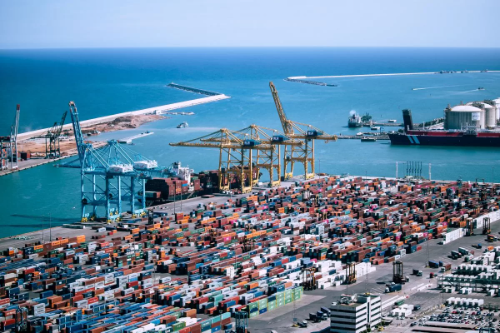Equatorial Guinea, Albayrak Launch Port JV to Compete with Cameroon

TLDR
- Equatorial Guinea has finalized a joint venture with Turkish logistics group Albayrak to manage the ports of Bata and Malabo
- The new entity, Alport Guinea Ecuatorial, is 51% owned by Albayrak and 49% by the Equatorial Guinean state
- The 10-year contract is expected to generate €4 billion in revenue and create 2,000 jobs
Equatorial Guinea has finalized a joint venture with Turkish logistics group Albayrak to manage the ports of Bata and Malabo. The new entity, Alport Guinea Ecuatorial, is 51% owned by Albayrak and 49% by the Equatorial Guinean state. The 10-year contract is expected to generate €4 billion in revenue and create 2,000 jobs.
The deal includes transit agreements with Chad and the Central African Republic, potentially redirecting freight from Cameroonian ports. This could impact Cameroon’s annual revenues by as much as 340 billion CFA francs ($567 million), according to experts. Cameroon currently handles most of the regional traffic via Douala and Kribi.
Albayrak plans to reduce port tariffs and improve efficiency. Vice President Teodoro Nguema Obiang Mangue has emphasized job creation and tariff controls as key parts of the agreement. Cameroon faces criticism for administrative bottlenecks and irregular checkpoints that increase transport costs. A 2018 estimate put illicit payments along the Douala-N’Djamena corridor at 175 billion FCFA annually.
Daba is Africa's leading investment platform for private and public markets. Download here
Key Takeaways
Equatorial Guinea’s partnership with Turkey’s Albayrak aims to shift the logistics landscape in Central Africa. The new port operator threatens Cameroon’s dominance in regional trade corridors by securing transit agreements with Chad and the Central African Republic. Cameroon has long relied on tolls and related port services for budget revenues, but irregular checkpoints and administrative delays have raised costs for traders. According to EU-funded reports, Cameroon hosts more than 90% of checkpoints on the Douala-N’Djamena and Bangui corridors, contributing to illicit payments of up to 225,000 CFA francs per truck. These issues have driven demand for alternate routes. Equatorial Guinea may gain a strategic edge by offering simpler, lower-cost operations. The shift could also encourage other landlocked countries to reevaluate their port access, especially as Albayrak positions itself as a competitive operator in a region where transport costs remain among the highest globally. Cameroon may need to accelerate reforms to retain its logistical relevance.

Next Frontier
Stay up to date on major news and events in African markets. Delivered weekly.
Pulse54
UDeep-dives into what’s old and new in Africa’s investment landscape. Delivered twice monthly.
Events
Sign up to stay informed about our regular webinars, product launches, and exhibitions.




